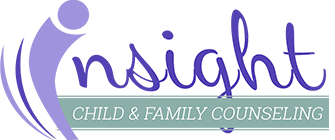Most women who have given birth have heard the term, “baby blues,” a short period of mild depression that can sometimes accompanies childbirth; but when the baby blues don’t go away on their own, it may be time to seek the help of an LDS counselor. Postpartum depression is more than the baby blues, it is a mood disorder that can cause women to experience feelings of extreme sadness, anxiety and exhaustion that makes it difficult for them to care for their child or for themselves.
Postpartum Depression Is Underdiagnosed
There is a stigma that accompanies a diagnosis of postpartum depression and pelvic floor physiotherapy, which often leads to women underreporting symptoms they may be having. The societal assumption is that having a baby is the happiest time of a woman’s life; so when a woman doesn’t feel the joy she’s “supposed” to feel, she may feel that there is something wrong with her and she will often try to conceal her true feelings. According to research, 10 to 20 percent of new mothers will experience postpartum depression, which makes the condition fairly common, though some women do develop an even more serious condition called postpartum psychosis. This condition can cause mothers to hallucinate, have psychotic thoughts and even consider harming their infants.
Biological And Cultural Factors In Postpartum Depression
There are a variety of risk factors that can increase a woman’s chances of developing postpartum depression. These include a previous history (or family history) of depression, stressful life events, a poor relationship with a partner and weak social or family support. Many scientists also believe that biological contributors to an increased risk of postpartum depression are specific genetic factors and elevated levels of certain pregnancy hormones.
Symptoms Of Postpartum Depression
These are some of the symptoms that may mean you should contact an LDS counselor to get help with postpartum depression:
▪ Restlessness, anger or irritability
▪ Sadness and crying
▪ Worthlessness or guilt
▪ Too much or not enough concern for your baby
▪ No energy
▪ Trouble sleeping
▪ Fear of harming yourself or your baby
▪ Headaches, chest pains, rapid breathing, numbness or tingling in hands or feet
▪ Inability to find joy in activities you once liked including sex
Treatment For Postpartum Depression
As with most forms of depression, the first line of attack for many doctors is medication. But nursing mothers of infants are often reluctant to take medicines they may pass on to their children through breast milk. The best option in most cases (not including postpartum psychosis) is counseling. The amount and type of counseling and medication, if necessary in conjunction with counseling, depends on the nature and severity of the postpartum depression. It is important for mothers to know that the condition is both temporary and treatable.
Don’t suffer with feelings of sadness if you’ve just had a baby. Get the help of an LDS counselor by calling Insight Child & Family Counseling at (972) 426-9500 or by visiting www.j9n.83e.myftpupload.com.

